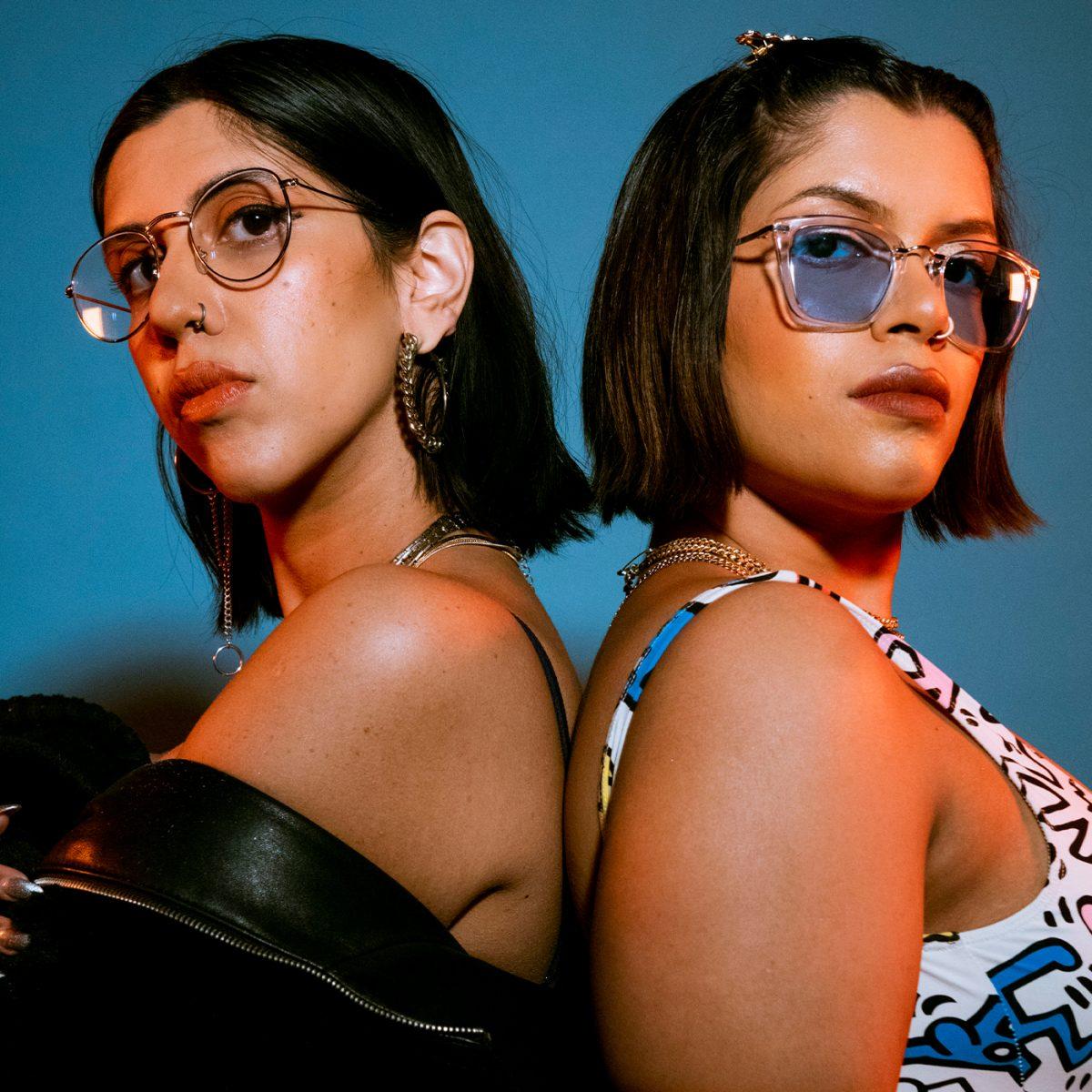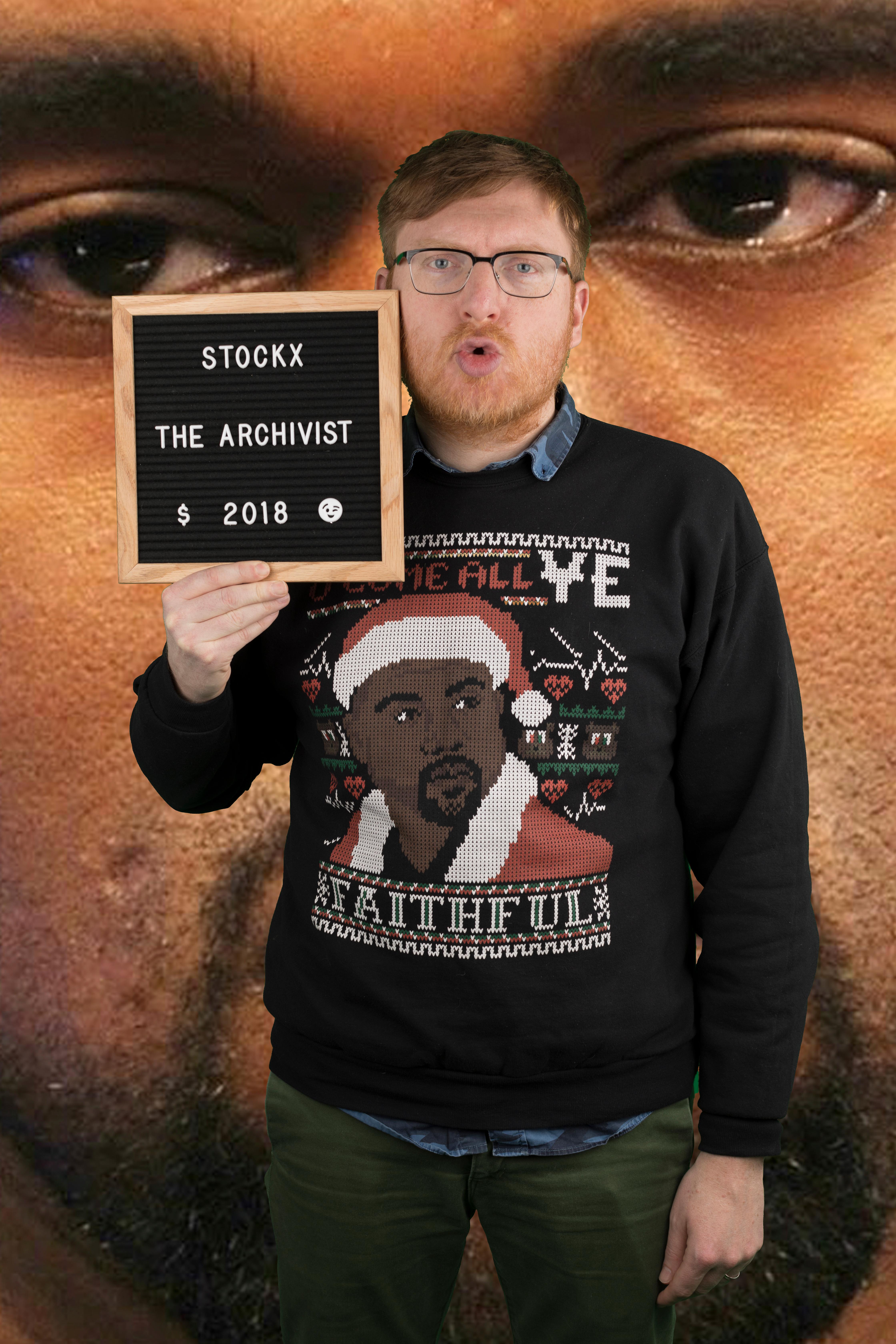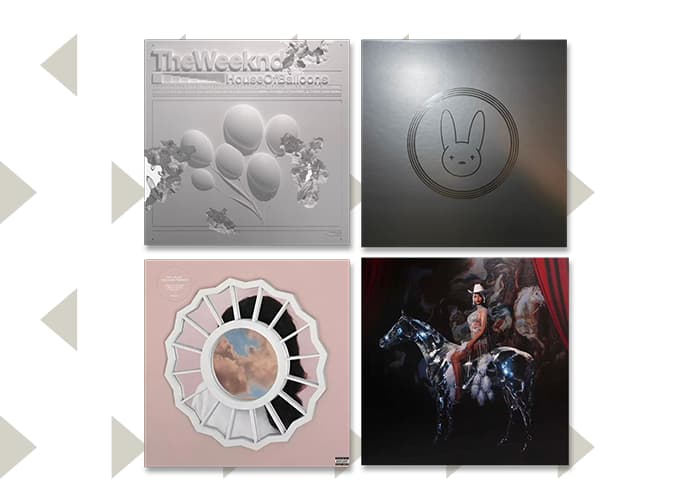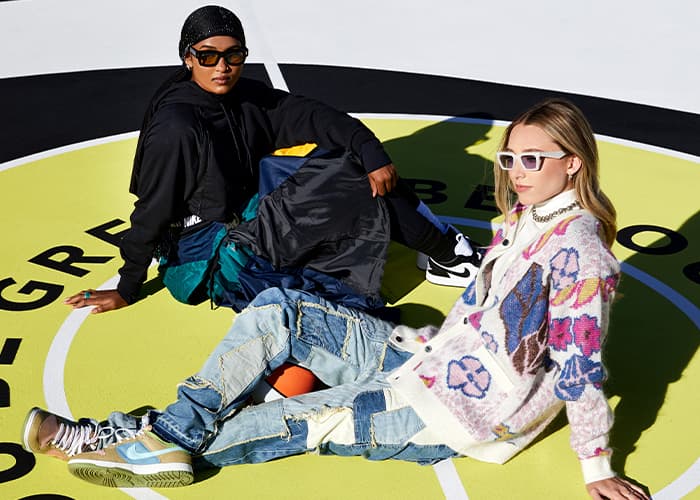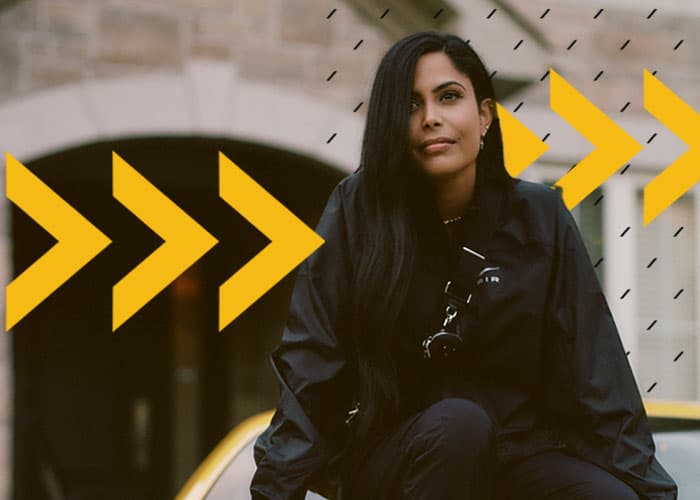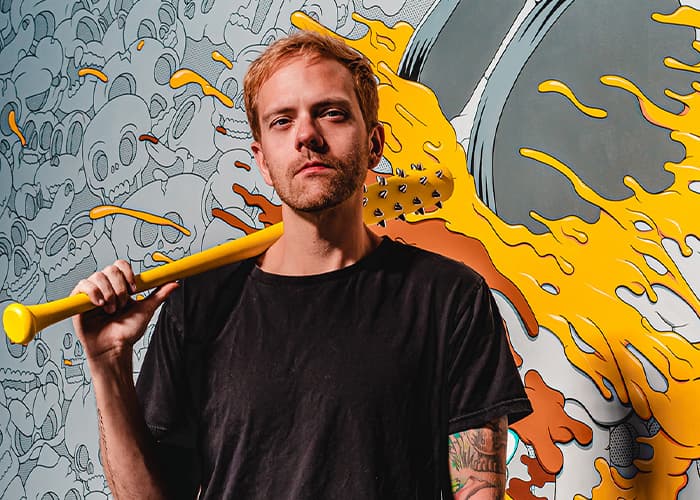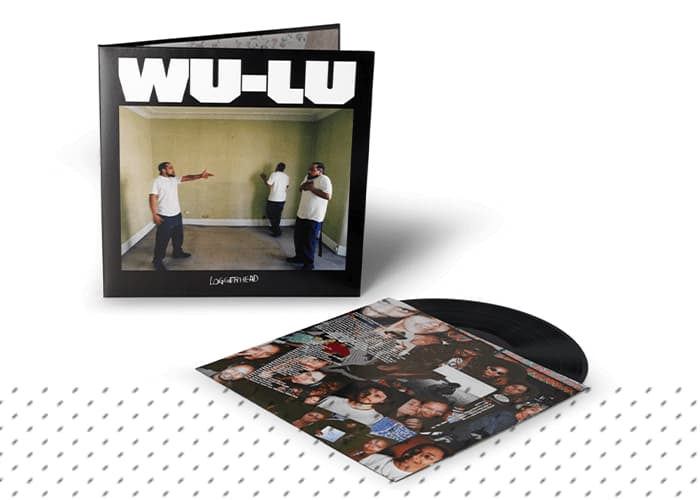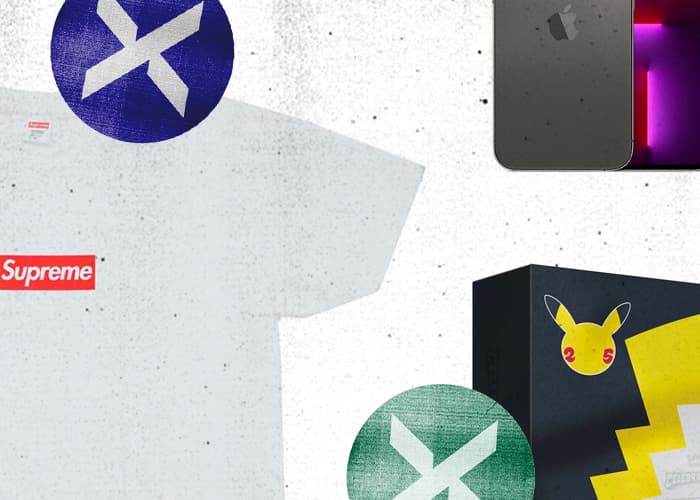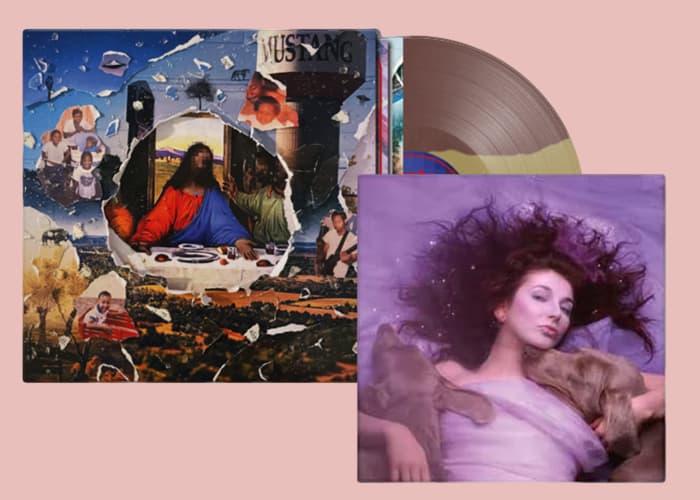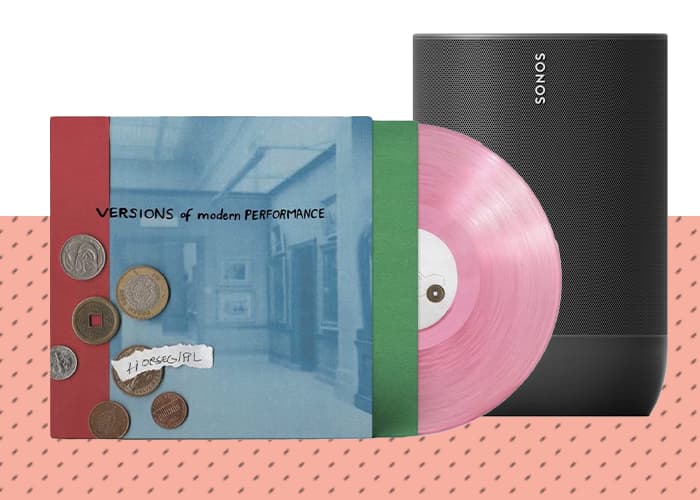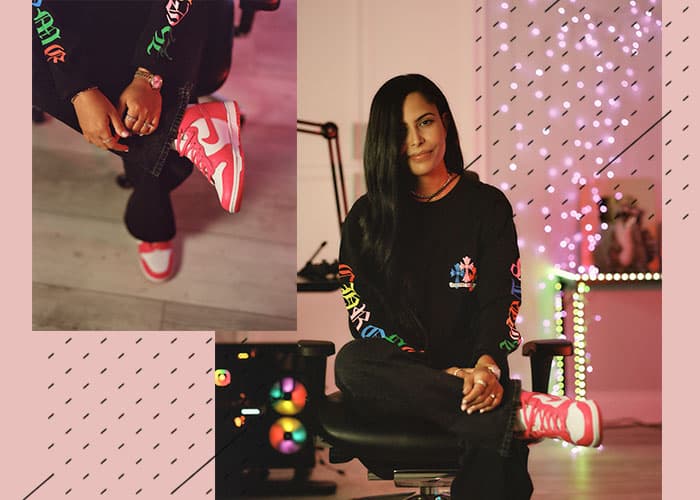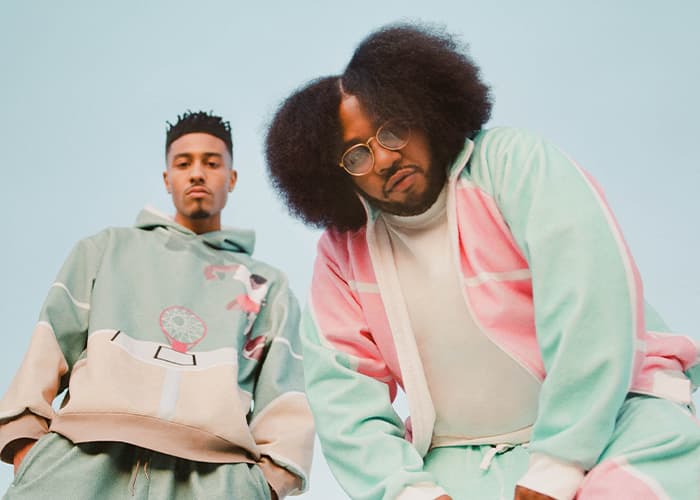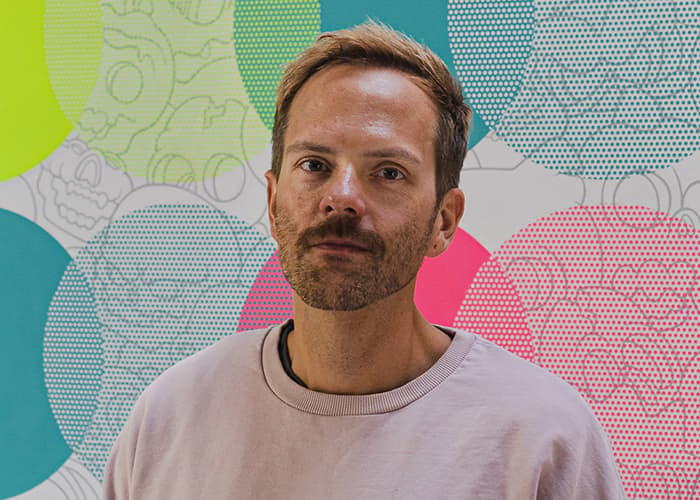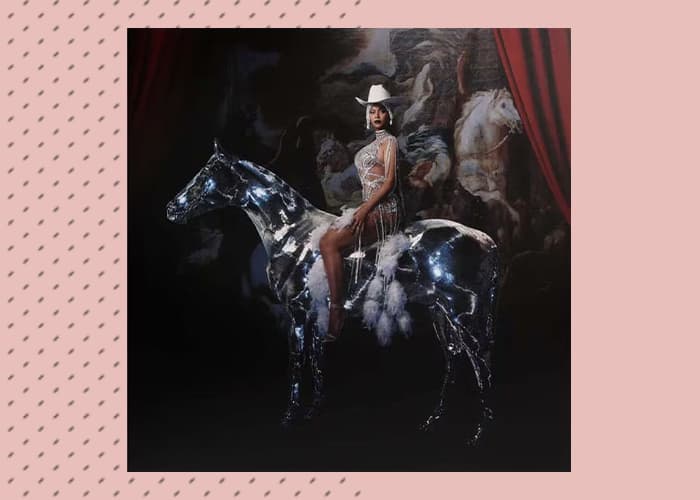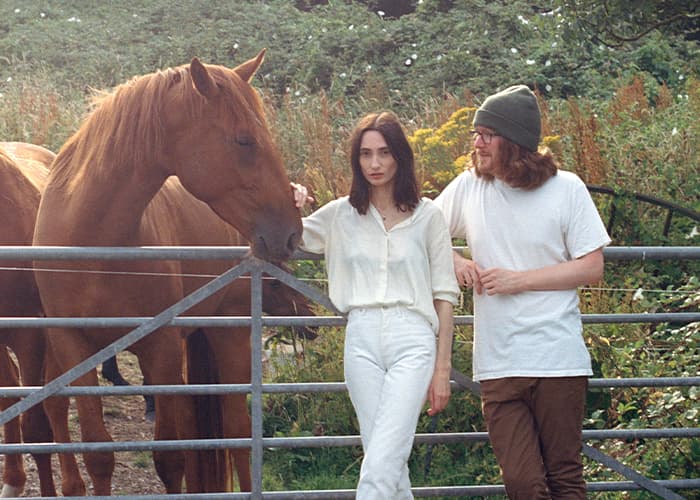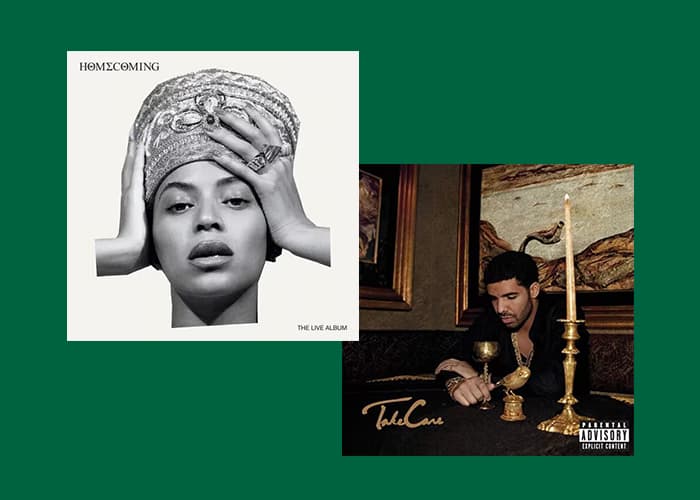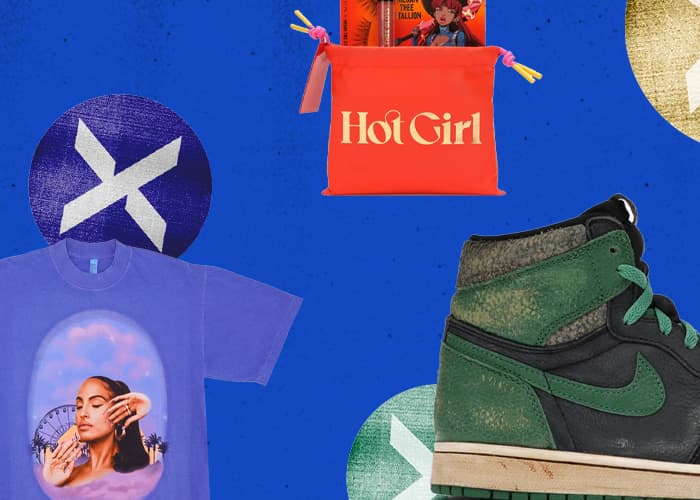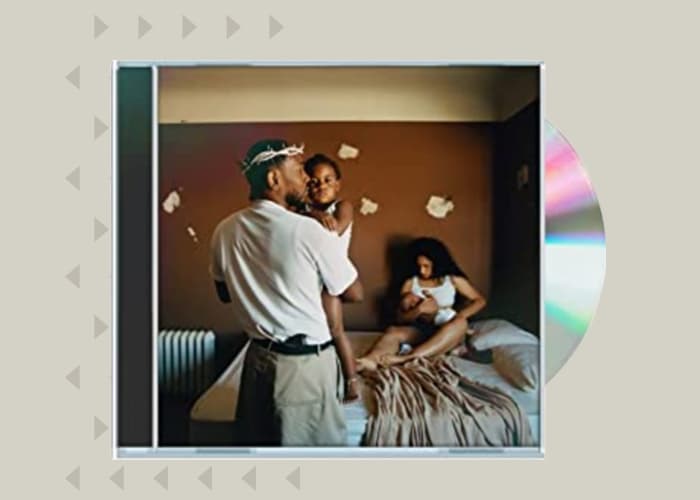As Cartel Madras, sisters Priya “Contra” Ramesh and Bhagya “Eboshi” Ramesh, have created some of the most exciting rap on the planet over the last five years. Their blend of gangsta rap, trap, techno, and house – all infused with punk rock energy – has propelled them from cult to critical darlings through the release of three EPs. The Ramesh sister’s call this polyglot stew of music and culture “goonda rap,” which they describe as “our demeanor as South Asian and South Indian women in the Western rap industry, but it also was a way for us to go rogue and begin playing with genre within hip-hop.”
Recently, we talked with Eboshi about the history of their Goonda Trilogy, creating music within the broader tradition of hip-hop, reductive narratives of identity and representation, and navigating the boundaries between music-making and being a professional creative.
You recently released part three of the Goonda Trilogy. What’s the history of the project?
We started the first of the three EPs in 2018, which was our first year active. We didn’t really have anything official out when we started touring Canada. We just had music on SoundCloud that wasn’t recorded properly or produced very well. But somehow, with that, we were able to play a lot of festivals, tour, and make a name for ourselves in the Canadian underground. And the music that we toured with ended up being a part of our first EP, Trapistan. We signed to Sub Pop Records soon after that, which was dope, and we had already started working on the second EP, Age of the Goonda. The second EP took shape while we were touring. We always try out the stuff that we write in front of the audience before it comes out because we like to capture what our live shows feel like in our recorded music. We’re performers first. We’re live artists first, and then we kind of exist online. But that’s all had to change pretty radically in the past year and a half. And I’d say part three, The Serpent & The Tiger, was a real indication of that because there’s so much music that sounds different than what we had put out before, but it’s still very experimental.
What elements in your music have changed as you’ve continued experimenting with your sound and songwriting?
When we came onto the scene and started making music, we had a lot of rage. And there was just a lot more anger and pessimism in what we were doing. These feelings are still very much an undercurrent in everything we do, but we’re a lot less earnest in some of the things we try to prove. I think the original earnestness was placed upon us because people like to make a whole bunch of assumptions about you based on what they think your identity is. People kept trying to make us into this representation project – which we have never been and will never be – even though we certainly have community in many different groups. People kept trying to be like: artists, women, gay. And none of those things are lies, but at the same time, we do not make music just speaking to a specific subset of the population. It’s extremely reductive and annoying. What we’re doing is making music with these groups and communities we’re a part of for these groups, but not only for these groups and not as a representation of these groups. We make music as people who have membership to these groups.
Traditionally, there have been geographical biases in hip-hop. Did that impact your decision to make music?
I love all of the conversations surrounding who can make what music and why. And I think those are really interesting conversations because anybody can do whatever they want at the end of the day – Twitter isn’t going to stop anyway. But in terms of where we come from and how we see ourselves in the greater narrative of the hip-hop tradition, it’s always been about respecting everything that came before us—and knowing and acknowledging that we didn’t invent anything that we’re doing. We’re just experimenting within something that’s been going on for a lot longer than we have. And that has a history rooted in so many different types of narratives. And so many different types of areas in the United States. And I think what’s been our way of situating ourselves in the greater ecosystem of the hip-hop landscape has been carving out a space because we are from India. We’re born there, and “goonda” is a word from India. We can’t say that we’re making East Coast hip-hop; We can’t say that we’re making West Coast hip-hop; we can’t say we’re making gangsta rap music and compete. We can’t fall into the tradition of places that we aren’t from, nor can we pretend to, because that would be whack. But what we can do is try to tell stories that fascinate and interest us that have to do with us, that have to do with those families and the people we know and fit it into a different language of hip-hop.
What’s the most overrated right now?
I don’t know how to put it, but changing something so that it’s digestible for many people – I guess being easily digestible is overrated? I think that sounds way more pretentious than I intend for it to be. What I mean is that so many people in music, and in their personal style and aesthetics, have a thing that they do, that they like, and that they’re good at. But then they change it so that more people can like it, like them, or like what they do. And I think that’s tragic because even with the trend towards everything sounding and looking the same, there’s still so much variation and differentiation. The idea that you have to change yourself and what you do so that more people will like it is overrated. It’s mostly just sad.
What’s the most underrated right now?
I think what’s underrated is people not taking things so seriously. I think that’s pretty underrated. Everyone’s really curious; everyone is so serious about themselves. That’s great; you should be. But also, what if you weren’t and you could joke about everything? That would be way more chill for everyone.
Bonus Question: How do Cartel Madras and your media company, Thot Nation Media, coexist? Are there boundaries between the group and the band?
Yeah, that’s a cool question because Thot Nation has a bunch of different purposes. One is that it is an artist collective of us and the people we work with. It’s also interdisciplinary, with an artist consulting group and a production house. Not everything Cartel Madras does falls under the Thot Nation umbrella, and not every Thot Nation project involves Cartel Madras. Usually, we’re all kind of working on some aspect of a Thot Nation project. For example, we’re working on a web series interviewing a bunch of different Canadian artists. What’s interesting is that it’s a Thot Nation production, and we’re a part of the creative process behind the scenes, but we’re also interviewing the artists as Cartel Madras on camera too. So it can get complicated, but everything is complicated.


